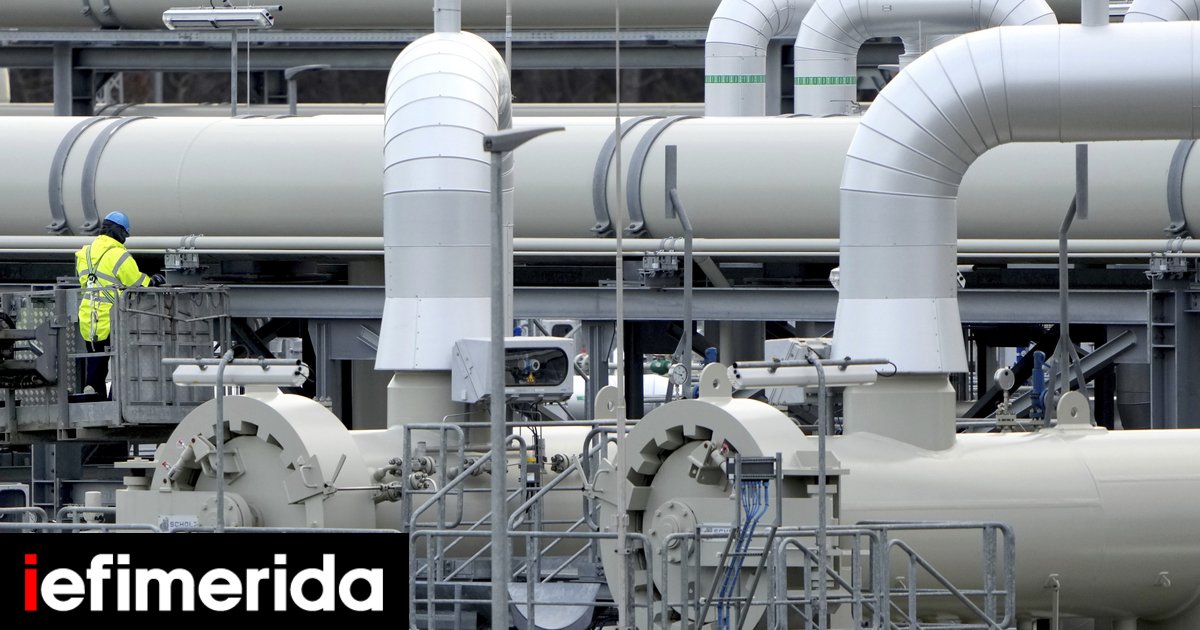
I “smelled” the summer of 2021 after natural gas “dropped” to the levels of that period, when in Europe they started… grumbling, not suspecting what was coming.
There is no doubt that the drop in the price of natural gas to 36 euros, 66% below last year’s levels, has brought some faint smiles and sighs of relief, after the energy shock of 2022. Cut electricity prices. But is everything rosy?
First of all, no one dares to talk about an end to the ultimatum, and it is clear that without any clear indication of how European countries will move to replenish their reserves, futures contracts for the next winter season – that is, in the third month of 2023 and the first third month of 2024 – ” Run” up to 57 euros. However, even if one assumes that prices will remain somewhat at current levels, it is a far cry from pre-crisis data.
The price of natural gas has doubled during the pandemic
In May 2019, any time… innocence, natural gas was around 15 euros and if you look at the historical data you will find that its price was around these levels. Distortions caused by the pandemic and lockdowns have “pulled” natural gas into a double price and the war in Ukraine has caused shock. Unfortunately, European institutions treat the return to 2019 levels as a return to normal life, despite the fact that it is clear that the costs for households and businesses are many times higher.
But the problem is not theoretical. With energy prices skyrocketing at the height of the crisis, European governments mobilized 758 billion euros to support households and businesses, cutting taxes and subsidizing direct income, without absorbing all the shocks. Now, with European institutions officially talking energy crisis stagnation, even though we are light years away from pre-crisis levels, pressure is building to lift the latest support measures.
The European Central Bank is pressing for the removal of support measures
After the successive recommendations of the Eurogroup – albeit “softer” ones – regarding fiscal consolidation, it is Mrs. Lagarde’s turn to send a tougher message to governments, calling for the lifting of support measures, so as not to boost demand and give feedback to inflation. How is this recommendation “translated”? Households will have to strain, even if inflation drops, which they, of course, are not to blame for. As for the warning or the threat, it was more than clear: as long as governments do not “unify”, the European Central Bank will raise interest rates.
Will Greece benefit from the hard bargain?
For us, this tough deal does not leave us unimpressed. The electricity subsidy mechanism expires in July, but the Energy Department has requested an extension, which it will likely get. What remains to be answered, perhaps in one of the Eurogroups in the coming months, is whether subsidies will continue in their current form or if they will become more targeted, as the Euroworking Group has already recommended. For small businesses, as long as electricity bills are at current levels — obviously much lower than the previous 12 months but higher than they were in 2021 — they will have to plan without government subsidies.
The only certain thing is that the state budget, the trade balance, and thus the economy, will benefit from the natural gas “fall”, which remains to be seen exactly how it will be recovered. The budget was “built” with a base scenario with an average gas price of €120 and we are now about €80 away from that scenario. With demand for natural gas around 30% lower than last year, at around 40 TWh, supply costs would drop by €5-5.2 billion, thus “easing” the balance of payments and boosting GDP by at least half by one unit.

“Avid problem solver. Extreme social media junkie. Beer buff. Coffee guru. Internet geek. Travel ninja.”





More Stories
Unstoppable Stock Market – New 13-Year Record with Another 1.9% Jump
Officially: This is the new Opel Grandland (+Video)
Which stock is very close to being included in the MSCI index?